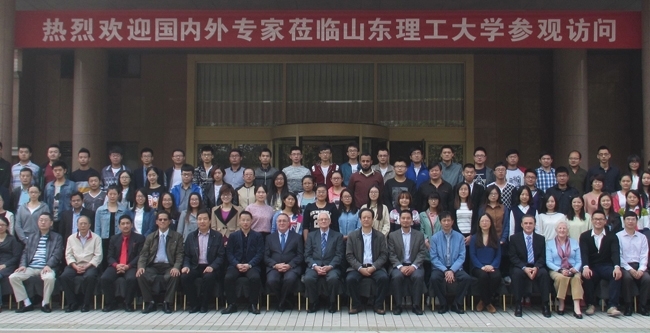News
Issue: Fungal diseases
09 February 2016 article

2016 events
The following Society events are taking place this year:
- Annual Conference 2016, 21–24 March 2016, ACC, Liverpool
- Focused Meeting: Molecular Biology of Archaea 5, 1–3 August 2016, London School of Hygiene and Tropical Medicine, UK
- Focused Meeting: Molecular Biology and Pathogenesis of Avian Viruses, 27–29 September 2016, Charles Darwin House, London, UK
See this issue's articles on the Annual Conference and the Focused Meetings for more details.
Antifungal resistance parliamentary briefing
The Society will be raising the important issue of antifungal resistance with policy-makers later this month, with the publication of our latest parliamentary briefing. The briefing will provide an overview of the challenges posed by antifungal resistance and highlight research being undertaken by microbiologists to tackle this problem.
The Society distributes a series of policy briefings to UK and Irish parliamentarians throughout the year to provide expert information on current issues and to raise the profile of microbiology. Recent briefings include Microbiology and Climate Change and Food Security from the Soil Microbiome. The briefings are also a great resource for teachers and students. Briefings can be downloaded from our Policy Briefings page.
New for 2016: Forum for early career members
The Society is establishing a forum for student and early career members of the Society, as part of a full programme of activities and resources to support the professional development of its members. If you’re an undergraduate or postgraduate student member you will be invited to join, as will postdoctoral researchers and other early career members of the Society.
To steer the Forum, we’ll be putting together an Executive Committee with roles that bring an early career viewpoint to all of our different streams of work, from conference content to policy work:
- Chair: will work with Council and the Professional Development Committee.
- Chair-Elect: will work with the Professional Development Committee, which oversees Professional Development at the Society.
- Treasurer: will look after the financial responsibilities of the Forum.
- Conferences Representative: will work with the Scientific Conferences Committee, which considers the scientific content of Society meetings.
- Programmes Representative: will work with the Policy and Publishing Committees, which look after the Society’s impact in the policy arena and oversee journal publications, respectively.
- Communications Representative: will work with the Communications Committee, which looks after Microbiology Today, Education and Outreach, and the Society’s other communications outlets.
- International Representative: will work with the International Working Group, which ensures the Society is considering its international endeavours.
To find out more about the Forum and each role, make sure you attend our information session at the Annual Conference at 1.30pm on Monday 21 March 2016.
Positions on the Executive Committee will be open to election by members of the Early Career Microbiologists’ Forum in Spring 2016, so if you’re interested in having an impact on the work of the Microbiology Society, put yourself forward!
Deaths
We are sad to announce the deaths of the following members.
Professor David Greenwood, who joined the Society in 1970.
Professor John Michael Thresh, who joined the Society in 1969.
Please contact [email protected] if you wish to notify the Society of the death of a member whose details can be included in this section.
Small World Initiative applications open!
After the Society’s successful Small World Initiative undergraduate and school partnership programmes in 2015, we would like to invite members to apply for the 2016 programmes. Applications are now open to run either an undergraduate programme or a school partnership programme, or you can apply for both! There is huge scope to use the programme in whichever way fits into your teaching and course structure, from standalone modules, embedding into the curriculum, or as an extra activity for students. Teachers and technicians at the Association of Science Education conference in January were also given a practical taster session of what the Small World Initiative entails. Both programmes involve students looking for antibacterial compounds in soil samples, and emphasise a more realistic research experience. Details of both programmes are available on our Small World Initiative pages.
The Society has also been out and about collecting soil samples from well-known sites. You may have seen our news story about Professor Nigel Brown and four-year-old Rory Spence collecting at 10 Downing Street in the summer. Professor Melanie Welham, Executive Director of Science at BBSRC, and Dr Simon Kerley, Head of Terrestrial Sciences at NERC, collected a soil sample from Polaris House, home of the Research Councils, later on in the year. We will be continuing to collect samples from sites of interest throughout 2016, and the results can be seen on our Small World Initiative Facebook page.
Microbial Genomics – call for papers
The Society’s newest journal, Microbial Genomics (MGen) invites submissions that use genomic approaches to further our understanding of microbiology, from clinically important pathogens to microbial life in diverse ecosystems. The scope covers all of microbiology, including microbial evolution, population genomics and phylogeography, outbreaks and epidemiological investigations, impact of climate or changing niche, metagenomic and whole transcriptome studies, and bioinformatic analysis. The international Editorial Board is led by Co-Editors-in-Chief, Professors Stephen Bentley and Nicholas Thomson, from the Wellcome Trust Sanger Institute, UK. MGen is fully open access and article processing charges are currently being waived during the launch period. Browse the latest articles and find out how to submit at mgen.microbiologyresearch.org.
Upcoming grant deadlines
|
Date |
Grant |
Notes |
|
1 March 2016 |
Travel Grants |
For conferences and courses from 1 April onwards*. Also for members not eligible for Society Conference Grants to apply for support to present at the Annual Conference |
|
15 March 2016 |
Microbiology in Schools Fund |
For School Members looking for funding for microbiology teaching initiatives taking place on or after 1 May 2016 |
|
1 April 2016 |
Research Visit Grants |
For visits and events from 1 June 2016 onwards |
|
International Development Fund |
||
|
Education and Outreach Grants |
ROLLING APPLICATION
Local Microbiology Event Sponsorship – all members can apply for funds to support microbiology-related events, e.g. sponsored talks.
*Please note, you do not need to have received confirmation of abstract acceptance to apply for these grants as conditional offers will be made. In this case, evidence of acceptance is required to claim your grant.
2016 Prize winners
The Society is delighted to announce our 2016 Prize winners, recognising significant contributions to the field of microbiology. All of our winners will deliver their Prize Lectures between 21 and 24 March at the Society’s Annual Conference 2016. This year’s winners are:
PRIZE MEDAL
Professor Philippe Sansonetti from the Pasteur Institute and the Collège de France
MARJORY STEPHENSON PRIZE
Professor Steve Oliver from the University of Cambridge
UNILEVER COLWORTH PRIZE
Professor Gurdyal ‘Del’ Besra from the University of Birmingham
PETER WILDY PRIZE
Professor Wendy Barclay from Imperial College London
FLEMING PRIZE
Dr David Grainger from the University of Birmingham
Keep an eye on the Society’s website over the forthcoming weeks for interviews with the winners about their research.
The Society joined with British Society for Antimicrobial Chemotherapy for schools event at FIS 2015
As part of the hugely successful FIS conference in Glasgow in November 2015, the Microbiology Society and the British Society for Antimicrobial Chemotherapy (BSAC) organised a joint primary school event at the Glasgow Science Centre with 95 Primary 7 students attending from two local schools. They all had the opportunity to do a DNA extraction from Escherichia coli while discussing how to look for genes relevant to antibiotic production and resistance, thanks to John Schollar from the National Centre for Biotechnology Education. They also looked at antibiotic-producing Streptomyces on agar plates, provided by Dr Paul Hoskisson and assisted by Society member Sarah Brozio, as well as taking part in a series of activities from the E-Bug project run by Public Health England. After a welcoming and fun introduction by Professor Nigel Brown, who chaired the session in the auditorium, the students then listened to two inspiring talks by Dr William Malcolm from Health Protection Scotland and Dr Paul Hoskisson from the University of Strathclyde, followed by a Q&A session.
Help shape the future of your Society
In March, nominations to Society Council, Committee and Divisions will open, including positions on the new Early Career Microbiologists’ Forum! Participation in the Society’s activities offers an exceptional opportunity to develop professional and personal skills, gain new experiences and contribute to the voice and direction of the Society.
If you are interested in making a difference and committed to shaping your Society, check the governance pages for full details on vacancies and information on how to apply.
JMM Case Reports round up
This year has seen an exciting development for JMM Case Reports, the Microbiology Society’s first open access journal. We have seen the journal move from strength to strength and take on some pivotal changes, including publishing accepted papers within three days and Editorial Board restructures. The journal also held its first board meeting at the Society Annual Conference in Birmingham last year.
Dr Robert Hall has joined JMM Case Reports as a Co-Editor-in-Chief alongside Dr Johannes Kusters, who has been influential in the creation of the Editorial Board and progress of the journal. In 2016, we will see both Editors-in-Chief working to pilot translated abstracts for JMM Case Reports. Of the journal, Dr Hall has said: “With high-quality reviews and expedited publication, the Case Report can enjoy a revival, and return to its rightful place as the source for the most up-to-date clinical isolates and research data on microbial pathogenesis, evolution, epidemiology, diagnostics, and of course case management. It is particularly gratifying to be working with our professional society on a project for the benefit of our international microbiology community.”
The Editorial Board has also expanded, taking on four new Executive Editors and six Editors, increasing the international and diverse scope of the journal. The new additions to the Editorial Board will be influential to the advancement of the journal and the great efforts of existing Editors, who we thank dearly for their hard work.
Elizabethkingia meningoseptica: an unusual cause for septicaemia, a Case Report in the ‘blood/heart and lymphatics’ subject category, has been one of the most well-received papers of the year. The paper was published last February and has gathered momentum since 2015.
Thank you to everyone who has had a hand in the growth of JMM Case Reports and we, the Society, hope that the journal continues to develop and encourage the progress of medical microbiology.
FURTHER READING
Swain, B., Rout, S., Otta, S. & Rakshit, A. (2015). Elizabethkingia meningoseptica: an unusual cause for septicaemia. JMM Case Rep doi:10.1099/jmmcr.0.000005
Colin Ratledge Center for Microbial Lipids
A new research centre for lipid research has been opened at Shandong University of Technology in Zibo City, Shandong Province, China. The centre has been named in honour of Society member Professor Colin Ratledge, Emeritus Professor of Biochemistry in the School of Biological, Biomedical and Environmental Sciences at the University of Hull, UK. Professor Ratledge is one of the foremost researchers in the field of microbial oils that are produced commercially as sources of various polyunsaturated fatty acids. The Center for Microbial Lipids was opened by Professor Ratledge on 16 October 2015. It will develop new ideas as to how to improve lipid production in a variety of micro-organisms.

Contributions and feedback
The Society welcomes contributions and feedback from members. Please contact [email protected] with ideas.
BENJAMIN THOMPSON
Head of Communications
b.thompson@microbiologysociety.org
Image: The Colin Ratledge Center for Microbial Lipids. C. Ratledge..
